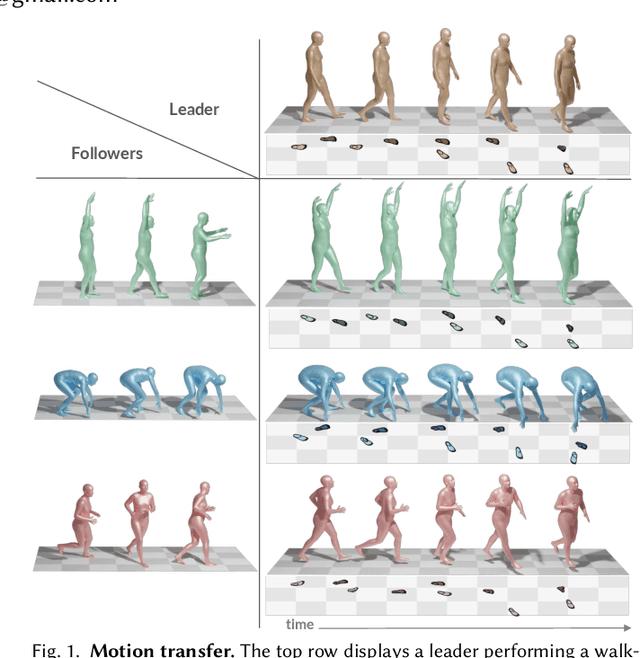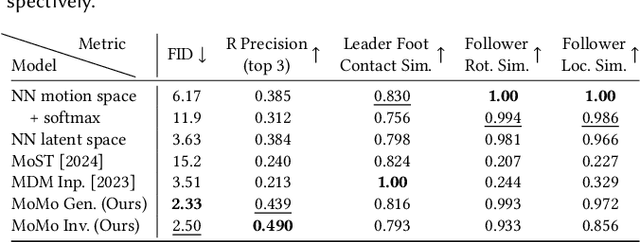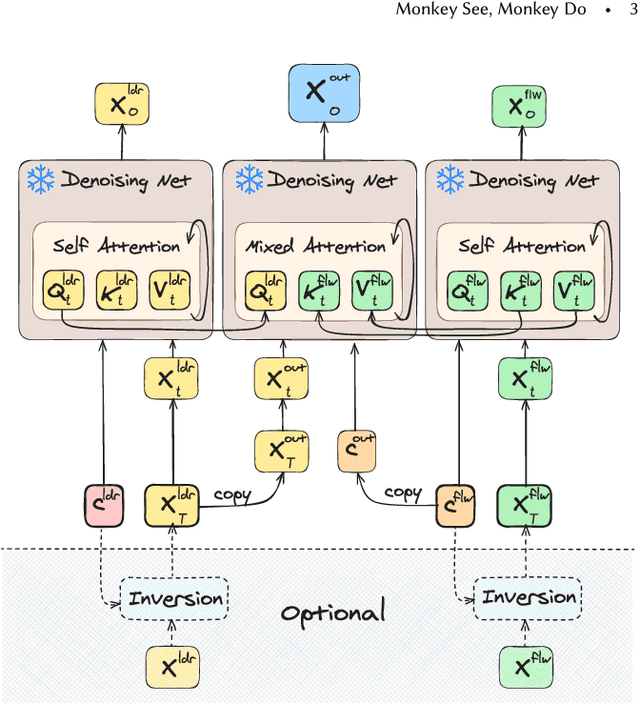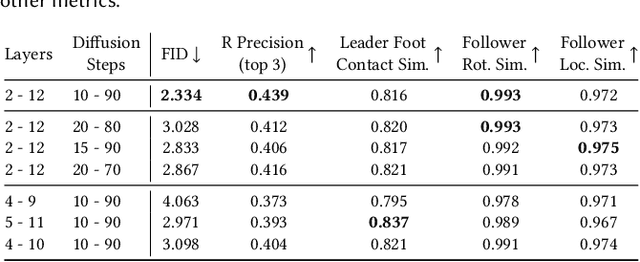Nathan Sala
Monkey See, Monkey Do: Harnessing Self-attention in Motion Diffusion for Zero-shot Motion Transfer
Jun 10, 2024



Abstract:Given the remarkable results of motion synthesis with diffusion models, a natural question arises: how can we effectively leverage these models for motion editing? Existing diffusion-based motion editing methods overlook the profound potential of the prior embedded within the weights of pre-trained models, which enables manipulating the latent feature space; hence, they primarily center on handling the motion space. In this work, we explore the attention mechanism of pre-trained motion diffusion models. We uncover the roles and interactions of attention elements in capturing and representing intricate human motion patterns, and carefully integrate these elements to transfer a leader motion to a follower one while maintaining the nuanced characteristics of the follower, resulting in zero-shot motion transfer. Editing features associated with selected motions allows us to confront a challenge observed in prior motion diffusion approaches, which use general directives (e.g., text, music) for editing, ultimately failing to convey subtle nuances effectively. Our work is inspired by how a monkey closely imitates what it sees while maintaining its unique motion patterns; hence we call it Monkey See, Monkey Do, and dub it MoMo. Employing our technique enables accomplishing tasks such as synthesizing out-of-distribution motions, style transfer, and spatial editing. Furthermore, diffusion inversion is seldom employed for motions; as a result, editing efforts focus on generated motions, limiting the editability of real ones. MoMo harnesses motion inversion, extending its application to both real and generated motions. Experimental results show the advantage of our approach over the current art. In particular, unlike methods tailored for specific applications through training, our approach is applied at inference time, requiring no training. Our webpage is at https://monkeyseedocg.github.io.
 Add to Chrome
Add to Chrome Add to Firefox
Add to Firefox Add to Edge
Add to Edge